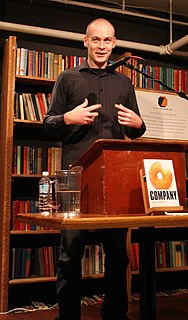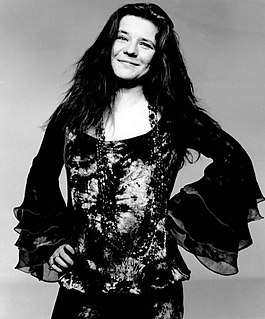A Quote by Max Barry
That's the thing you learn about values: they're what people make up to justify what they did.
Related Quotes
People compose the schedules they do out of the priorities they have; and someone who says otherwise is deceiving himself about what he really values. The same thing applies to money that applies to time. I make a practice of watching what people do, never what they say. Whatever is important, to anyone sane, he will make a place for it; people live out their values. Values are different in this respect from "ideals," which are typically vain and effete and thus exist mostly for the sake of promoting self-delusions.
When you learn to read and write, it opens up opportunities for you to learn so many other things. When you learn to read, you can then read to learn. And it's the same thing with coding. If you learn to code, you can code to learn. Now some of the things you can learn are sort of obvious. You learn more about how computers work.
The first thing you learn is sacrifice and how to keep moving forward in life, helping your parents to put food on the table. You learn to fight with your work. Then you start to learn values. That's why, every time I pull on the Argentina shirt or any other, I think about the things that happened to me when I was a kid.
You can learn technological things, you can learn about specific things, but the real problems that people deal with in any subject, existential subjects or romantic subjects, you never learn anything. So you make a fool of yourself when you're 20, you make a fool of yourself at 40, at 60 at 80. The ancient Greeks were dealing with these problems. They screwed up all the time. People do now.
Perhaps the most significant thing a person can know about himself is to understand his own system of values. Almost every thing we do is a reflection of our own personal value system. What do we mean by values? Our values are what we want out of life. No one is born with a set of values. Except for our basic physiological needs such as air, water, and food, most of our values are acquired after birth.
It's silly to have as one's sole object in life just making money, accumulating wealth. I work because I enjoy what I'm doing, and the fact that I make money at it - big money - is a fine-and-dandy side fact. Money gives me just one big thing that's really important, and that's the freedom of not having to worry about money. I'm concerned about values - moral, ethical, human values - my own, other people's, the country's, the world's values. Having money now gives me the freedom to worry about the things that really matter.
I was obsessed with the scientific instruments people were building and all the weird experiments they were doing. I did actually wind up working in some of that, but there were whole sections I'd written about these instruments that ultimately had to be abandoned when I realized that the book really was about Margaret Cavendish. I couldn't justify using all of them.
Narrative Collapse is what happens when we no longer have time in which to tell a story. Remote controls and DVRs give us the ability to break down narratives - particularly the more abusive ones. This is a great thing for escaping the 'ends-justify-the-means' traps of 20th-century wars and religions, but it can also make it hard to convey values.
Everyone always asks me, 'What advice did they give you on set?' but when you work with amazing actors like Anjelica Huston, Winona Ryder and Tom Hanks, the special thing about working with these people is getting to act alongside them. You see the decisions they make and the things they do. You learn from what they do and follow their footsteps.



































